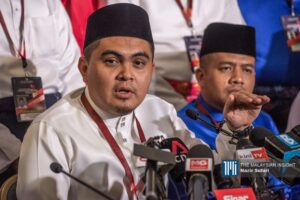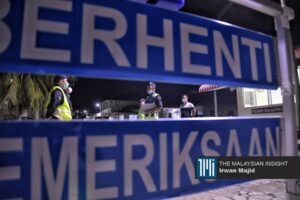by Roger Chin
IN celebrating Malaysia Day, it is essential to reaffirm the promises made in the Malaysia Agreement 1963 (MA63), which was pivotal to the formation of Malaysia.
This agreement ensured equitable representation and partnership among its constituent states, including Sabah and Sarawak.
To honour this commitment, it is crucial to address the current disparities in parliamentary representation and the implications for federal governance.
Role of one-third representation in Dewan Rakyat
Firstly, securing one-third representation in Dewan Rakyat would provide Sabah and Sarawak with a substantial voice in shaping federal legislation. This is not merely symbolic; it is a practical necessity for ensuring that the interests and needs of these states are adequately addressed in national policy decisions.
Secondly, it allows for a balance of power. With enhanced representation, Sabah and Sarawak would have significant leverage in influencing the federal government and its policy agenda.
This level of representation would ensure the unique perspectives and requirements of these states were integrated into the decision-making process, promoting a more balanced and inclusive governance structure.
And finally, federal constitutional integrity gets safeguarded by the protection against unilateral amendments to the Federal Constitution or significant federal laws.
It ensures that any substantial changes cannot be made without considerable input and agreement from representatives of Sabah and Sarawak.
This mechanism is essential for preserving the constitutional rights and interests of these states within the federation.
Limitations of one-third representation
At present, the lack of one-third representation limits the legislative function as the Dewan Negara, or Senate, functions primarily as a revising chamber with limited legislative power.
While it can review and delay bills from the Dewan Rakyat, it does not possess the authority to make final decisions on legislative matters.
The Senate’s role is largely one of oversight rather than direct law-making, making it an insufficient substitute for the substantial legislative influence provided by the Dewan Rakyat.
The limitations also allow for a delaying mechanism rather than veto power. According to Article 68 of the federal constitution, monetary bills passed by the Dewan Rakyat can be presented directly to the agong for royal assent if Dewan Negara does not act on them within a month.
For non-monetary bills, the Senate can only delay their passage by up to a year. This limitation highlights that real legislative power, including the ability to enact or block laws, resides primarily with the Dewan Rakyat.
There are also discrepancies in representation. The Dewan Negara includes both appointed and elected senators, with Sabah and Sarawak currently having 14 senators out of a possible 70.
Increasing their representation in the Senate would be a positive gesture but would not address the fundamental issues related to legislative power and decision-making central to fulfilling the promises of MA63.
Reaffirming the spirit of MA63
The celebration of Malaysia Day underscores the need to renew our commitment to the principles of fairness and partnership enshrined in MA63.
Achieving one-third representation in both the Dewan Rakyat and Dewan Negara reflects a genuine commitment to equitable governance and partnership within Malaysia’s federal structure.
Increased representation in the Dewan Negara is a step in the right direction, crucial for ensuring Sabah and Sarawak can effectively participate in the legislative process and safeguard their regional interests.
As we reflect on the significance of Malaysia Day, it is imperative to renew our dedication to these principles and strive towards a more balanced and equitable federation.
True partnership and equity require not just symbolic gestures but substantial changes that reflect the spirit and commitments of the Malaysia Agreement 1963. – September 16, 2024.
* This is the opinion of the writer or publication and does not necessarily represent the views of The Malaysian Insight. Article may be edited for brevity and clarity.






